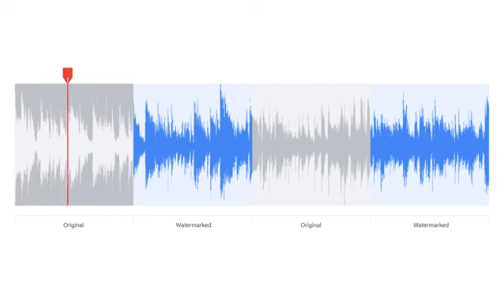Google DeepMind Launches AI Music Generation Model Lyria: Transforming Text into Unique Musical Works with AI
-
Google DeepMind's latest AI music generation model Lyria has attracted widespread attention. This model can create unique and high-quality music from text, including instruments and vocals. This innovation is part of a new feature on Google's video-sharing platform YouTube, aimed at allowing users to effortlessly generate their own musical works.
Lyria is designed to provide users with more nuanced control over the style and expression of the output. Demis Hassabis, co-founder and CEO of Google DeepMind, stated on Twitter: "With just a text prompt, Lyria can produce captivating music and vocals."
This new model will be launched in collaboration with YouTube as part of an experimental suite of creative tools, including Dream Track. Dream Track is a voice cloning tool for YouTube Shorts. Users simply provide text input to collaborate with artists, and the tool will generate a 30-second clip featuring the cloned voice of the artist, including voices from artists like T-Pain and Charlie Puth.
Additionally, Lyria will drive a series of music AI tools aimed at helping artists and producers enhance their creative processes. Users can create new music or instrumental parts from scratch or reimagine existing musical tracks.
Alongside the launch of Lyria, the Google DeepMind team also announced the expansion of its AI detection tool, SynthID, to cover audio generated by Lyria. SynthID was initially released in late August, capable of identifying AI-generated images by detecting digital watermarks embedded directly in the image pixels. Now, the tool has been extended to the audio domain, embedding watermarks into the audio waveforms generated by Lyria to protect music from editing and content infringement.

This watermark is designed to be highly robust, capable of withstanding edits such as noise addition, MP3 compression, and speeding up or slowing down the audio track—common methods used to bypass YouTube's ContentID detection tool.
After the launch of Lyria's latest model, Google DeepMind announced plans to continue testing AI tools with participants from its music AI incubator, including Universal Music Group. The record company signed an agreement with YouTube in August to experiment with AI tools, providing AI-generated versions of music by Johnny Cash and Frank Sinatra's relatives, which have already been released on YouTube.
The introduction of Lyria marks Google researchers' long-term experimentation in the field of AI music generation. Earlier this year in January, they released MusicLM, a model capable of generating five-minute audio clips based on text prompts.
